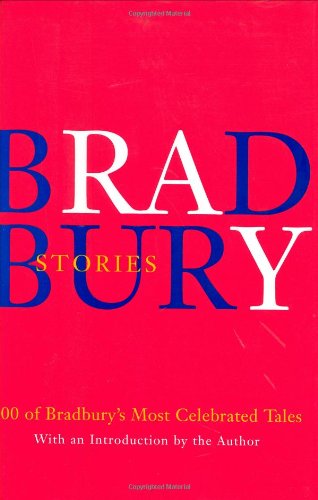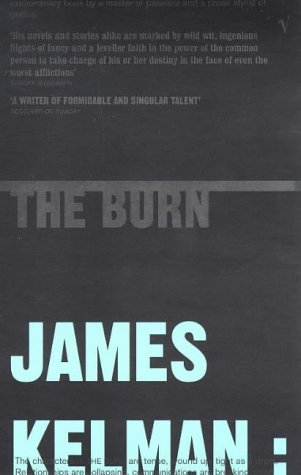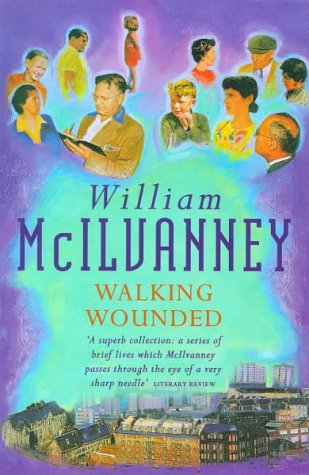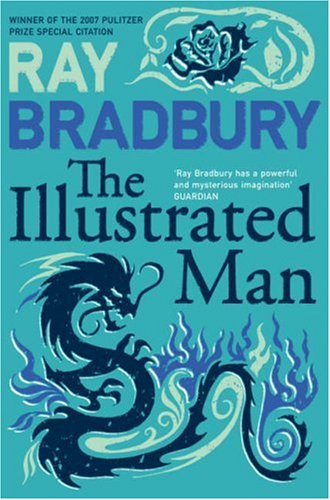The boy Martin came into the front room and watched his mother at the far end of the room where the last of the storm light beyond the large bay window brightened and darkened.
His mother sat in her favourite chair, legs curled under her, holding a large glossy book in her lap. On the table just in front of her she had a pot of coffee, a pack of cigarettes and a half eaten bar of dark bitter chocolate.
Martin came further into the room and walked over to the dinner table and trailed a finger along its surface. He picked up a glass ornament and peered at it and put it down. He crossed the room to the books stacked in shelves along one wall. Her books didn't interest him. Finally he sighed loudly and hooked his thumbs into the pockets of his jeans and watched her.
�I told you no,� she said without looking up from her book.
Martin turned around immediately and walked out of the room and closed the door behind him. Her swore under his breath and marched into the kitchen and he put his bright yellow winter coat on and changed into his hiking boots.
He went out by the back door and came around the blind side of the house. He walked along a short path between some grassy knolls and walked onto beach proper and the big rocks there where the boat was tied.
The wind was whistling along the beach, stripping sand as it went so that tight granular ribbons of sand hissed and snapped along the open spaces.
He glanced back at the house and saw his bedroom window and he could see his computer screen glow clearly in that pane of darkness.
Martin walked on. He could smell the sea and he loved the smell of it. He picked up an old weathered stick the colour of white bone and poked around a grassy knoll.
The dog suddenly appeared and loped down the path to him, slack jawed happy with its tongue lolling. It leaped at the stick and Martin pulled the stick away and pushed the dog down. The dog barked at him once and twisted away again and ran among some sand dunes and the he could hear it digging in the sand.
�Stupid dog!� Martin laughed and threw the stick into the sand dunes but the dog only stopped digging for a moment.
He carried on down the beach, kicking at bits of driftwood here and there with his boots. He saw a stone the shape of an egg the colour of milk and he picked it up. It was heavy and he threw it in a looping arc towards the water.
He stood there momentarily transfixed, knowing what he was going to do, but not sure just yet when he would do it.
Martin scowled darkly but there was something theatrical about it, a gesture learned rather than discovered and there was still enough of the child in him to soften his face, to douse the anger in his eyes with brightness.
He shrugged and finally went to the boat. The boat was named Marigold and it was his father�s boat. It was a small fibreglass boat with room for two men, some fishing gear and not much else. It had a small unreliable onboard engine.
Martin dragged and rocked the boat into the water. He'd never taken the boat out in any kind of bad weather and the danger thrilled him. He waded through the water a little and the boat began to bob about so he pulled himself in and sat up. He took the key from his pocket and turned the engine on and the engine caught and spluttered and the small propeller turn under the surface and the water boiled around the blades.
The boat had drifted sideways to the land and he turned it and headed out into the deeper water.
He took the boat out about two hundred meters into deeper water. The waves were stronger here and the boat bucked against the waves and the engine growled deeply.
Martin grinned and his heart pumped strongly. He began to turn the boat when the engine died.
He laughed and swore and put the key in again and pressed the ignition button but the engine wouldn't start. He tried again and again.
A seagull became interested and flew over. It hovered in the wind a few meters above him to the right of the boat and eyed him evilly and opened its yellow beak and then it turned in the wind and made a long swoop back to land.
The boat turned in a wave. Martin stood up and looked back. He could see the house and he could see the big bay window and he raised his arms up and waved and opened his mouth to shout but he felt foolish and let his arms fall to his sides.
There was a box under the seat and he dragged it out and opened it but there was only some fishing tackle and some nets in it and some old engine oil.
The boat had drifted another ten meters or so to the right. Martin could see the edge of town and the streetlights dimly yellow in the darkness and he even saw some cars come along the coast road and pass behind the house and go into town.
He had forgotten his watch and when he realized this he panicked and stood up again and raised his arms up and waved and shouted.
The boat rocked harshly in a large wave and Martin sat down again and turned and looked back out to sea where the darkness writhed and the sea was an angry bruised colour.
He peered up at the sky and what light there was, appeared to drain into the darkness and huge cloud structures revolved with gigantic momentum, the edges of them tearing apart in the wind.
Martin twisted around and looked for the house, only it was difficult to make it out in the gloom. But he could still see the light at the big bay window and he stood up and waved desperately.
A large wave gripped the boat and tilted it leftwards. Martin still had his arms raised and he slipped backwards and his foot caught on something and he fell into the water.
He kicked and thrashed and yelled. The ice-cold grip of the water shocked him. He gasped and spun around but the boat was just beyond his reach and before he could swim to it another wave swelled around him and pulled him away from it and the boat itself disappeared in the lee of another wave.
He whimpered and then a large wave raised him up above the general shifting mass of water; the shore slid into view and he saw the house again briefly and he cried out but the wave passed and he sunk again.
The light at the big bay window darkened as she read and the room grew a little cold. She tried to concentrate on the book but something troubled her and she frowned and closed the book. She sat back slowly and rubbed her neck. She stood up and stretched and she turned around and went to the big bay window. She leaned on the windowsill and looked out. She could hear the dog bark somewhere on the beach and then her eyes adjusted to the gloom outside and she saw the shape of the dog as it ran back and forth at the waters edge. She yawned and leaned against the window and closed her eyes.
As Martin dragged himself onto the beach he heard the door of the house slam. His head hurt and salt water burned his eyes. He saw his mother run down the path. She tripped over in her hurry and fell against one of the sand dunes.
Martin staggered forward, seawater foaming around his feet, until he was on the beach proper. The dog circled him.
Martin glanced back at the sea; its shifting dark mass flashed glassy green brightness under the big waves. It thrummed dully like an engine.
Martin turned around. His mother had almost reached him and he laughed and pointed, as if he could explain his sudden exhilaration, his dizzying escape.
She shook him and screamed but he just laughed at her. Finally she slapped him.
Martin stripped and showered in the bathroom His mother banged on the bathroom door. �Come downstairs when you�re done,� she ordered.
When he came downstairs she gave him some headache tablets. She�d turned the heating up in the house and lit a fire in the reading room.
She smoked nervously. She stared at him. She tried to fathom where her boy had gone, who this son was.� I can't understand what's going on in your head any more,� she said.
�I'm a teenager. You're not supposed to.�
It was just the kind of smart answer from him that got her nowhere. She stubbed her cigarette out. �You�re only thirteen. A boy. A stupid boy. What you know wouldn�t fill a tin can. What in hell�s name am I going to do with you?�
Martin scowled. �I�m sorry,�
�But that�s just it,� she said, her voice breaking. She slumped down on a chair. �You�re not sorry. You�re not sorry at all.�
Martin walked over to the window. He could see the sea outside and his mother�s reflection printed opaquely in the dark glass. He sensed instinctively a shift in balance between the two of them, like a tide on the move. He was going to ask her the question.
�When is Dad coming back to live with us?�
She drew her knees up to her chin. Her hair fell over her face.
He knew the answer, even as her sobs broke over him like waves. But nothing could drown him now. Not the world, not his mother or his father.
 "The single biggest literary influence of my younger years were the writings of Ray Bradbury (see left). His beautiful short stories were gifts of wonderment in an otherwise impoverished childhood. I looked for his books everywhere. While storms lashed my small council house, I ran through the cornfields of Illinois, walked the sands of Mars. I discovered poetry like most teenagers, when hormones suddenly assembled booming orchestras of despair and joy in the ampitheatre of my head. I tended to discover single poems rather than poets in the few anthologies in the town or the school library. One of my prized possessions is a stolen beat up anthology from my old school's library, �The Contemporary American Poets,� edited by Mark Strand
"The single biggest literary influence of my younger years were the writings of Ray Bradbury (see left). His beautiful short stories were gifts of wonderment in an otherwise impoverished childhood. I looked for his books everywhere. While storms lashed my small council house, I ran through the cornfields of Illinois, walked the sands of Mars. I discovered poetry like most teenagers, when hormones suddenly assembled booming orchestras of despair and joy in the ampitheatre of my head. I tended to discover single poems rather than poets in the few anthologies in the town or the school library. One of my prized possessions is a stolen beat up anthology from my old school's library, �The Contemporary American Poets,� edited by Mark Strand  (see right). I committed that crime to keep William Stafford�s �Travelling Through The Dark�, Theodore Roethke�s �Elegy For Jane�, Louis Simpson�s �The Redwoods� and Richard Wilbur�s �Running.� But the short story is my first love."
(see right). I committed that crime to keep William Stafford�s �Travelling Through The Dark�, Theodore Roethke�s �Elegy For Jane�, Louis Simpson�s �The Redwoods� and Richard Wilbur�s �Running.� But the short story is my first love." 'THE GRANTA BOOK OF THE AMERICAN SHORT STORY' - Edited by Richard Ford
'THE GRANTA BOOK OF THE AMERICAN SHORT STORY' - Edited by Richard Ford 'THE STORIES OF TOBIAS WOLFF'
'THE STORIES OF TOBIAS WOLFF' 'THE BURN' by James Kelman
'THE BURN' by James Kelman 'WALKING WOUNDED' by William McIlvanney
'WALKING WOUNDED' by William McIlvanney 'THE ILLUSTRATED MAN' by Ray Bradbury
'THE ILLUSTRATED MAN' by Ray Bradbury

